
The Federal Republic of Central America, initially known as the United Provinces of Central America, was a sovereign state in Central America that existed between 1823 and 1839/1841. The republic was composed of five states, and a Federal District from 1835 to 1839. Guatemala City was its capital city until 1834, when the seat of government was relocated to San Salvador. The Federal Republic of Central America was bordered on the north by Mexico, on the south by Gran Colombia and on its eastern coastline by the Mosquito Coast and British Honduras, both claimed by the federal republic.

José Francisco Morazán Quesada was a liberal Central American politician and general who served as president of the Federal Republic of Central America from 1830 to 1839. Before he was president of Central America he was the head of state of Honduras. He rose to prominence at the Battle of La Trinidad on November 11, 1827. Morazán then dominated the political and military scene of Central America until his execution in 1842.

The Farabundo Martí National Liberation Front is a Salvadoran political party and former guerrilla rebel group.
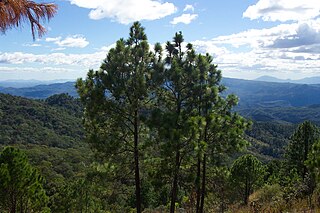
Morazán is a department of El Salvador. Located in the northeast part of the country, its capital is San Francisco Gotera. It covers a total surface area of 1,447 km2.
Coordinadora Revolucionaria de Masas was a coordination of revolutionary mass organizations in El Salvador formed on January 11, 1980.
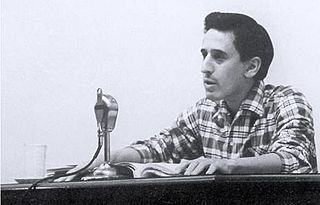
Roque Antonio Dalton García was a Salvadoran poet, essayist, journalist, communist activist, and intellectual. He is considered one of Latin America's most compelling poets. He wrote emotionally strong, sometimes sarcastic, and image-loaded works dealing with life, death, love, and politics.
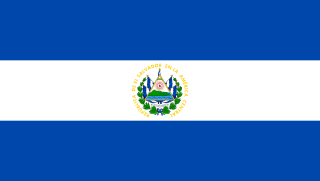
The Revolutionary Government Junta was the name of three consecutive joint civilian-military dictatorships that ruled El Salvador between 15 October 1979 and 2 May 1982.

Segundo Montes was a scholar, philosopher, educator, sociologist and Jesuit priest who was born in Valladolid, Spain and died in San Salvador, El Salvador. He was one of the victims of the 1989 murders of Jesuits in El Salvador.

José Eduardo Sancho Castañeda, better known by his nom de guerre Fermán Cienfuegos, was the leader of the Salvadoran organization National Resistance Armed Forces (FARN), which was a part of National Resistance (RN).
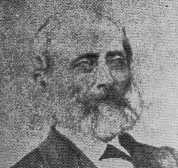
Licenciado José María Silva was a Liberal Salvadoran politician. He was twice briefly chief of state of the State of El Salvador, within the Federal Republic of Central America.
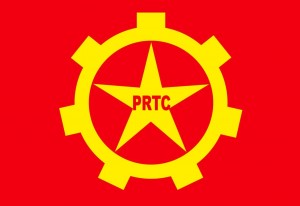
The Revolutionary Party of Central American Workers was a political party in Central America.
José Domingo Monterrosa Barrios was a military commander of the Armed Forces of El Salvador during the Salvadoran Civil War. He was responsible for ordering the El Mozote massacre.

National Resistance was a Salvadoran political party. It began as a revolutionary organization founded on March 10, 1975, which became part of the FMLN coalition in 1980, against the military junta in the Salvadoran Civil War.

The Salvadoran military dictatorship was the period of time in Salvadoran history where the Salvadoran Armed Forces governed the country for almost 48 years from 2 December 1931 until 15 October 1979. The authoritarian military dictatorship limited political rights throughout the country and maintained its governance through rigged elections.
The Primera División Femenina de El Salvador is the main women's football competition for in El Salvador. It was established in 2010.
Lil Milagro de la Esperanza Ramírez Huezo Córdoba was a Salvadoran poet and revolutionary leader, a founding member of the first guerrilla organizations that would come together in 1980 to form the Farabundo Martí National Liberation Front (FMLN). She was captured by agents of the National Guard in November, 1976. Her detention was kept secret and from that moment on she was considered "disappeared" until she was murdered inside the clandestine jails of the National Guard on October 17, 1979, after being tortured for three years. She is now remembered for her courage and determination in favor of the unprivileged lower classes.
The 1979 Salvadoran coup d'état was a military coup d'état that occurred in El Salvador on 15 October 1979. The coup, led by young military officers, bloodlessly overthrew military President Carlos Humberto Romero and sent him into exile. The National Conciliation Party's firm grasp on power was cut, and in its place, the military established the Revolutionary Government Junta of El Salvador (JRG). The junta was composed of two military officers and three civilians.
Adolfo Arnoldo Majano Ramos is a former Salvadoran military and political figure. He was one of the leaders of the military coup on October 15, 1979, and the chairman of the Revolutionary Government Junta of El Salvador from 1979 to 1980.
The final offensive of 1981, also known as the general offensive of 1981, was the unsuccessful first military offensive conducted by the Farabundo Martí National Liberation Front (FMLN) during the Salvadoran Civil War. The objective of the offensive was to initiate a popular revolution to overthrow the Revolutionary Government Junta (JRG), which had been ruling the country since the 1979 Salvadoran coup d'état. The FMLN hoped that the government would be overthrown by 20 January 1981; the date Ronald Reagan was to be inaugurated as president of the United States.
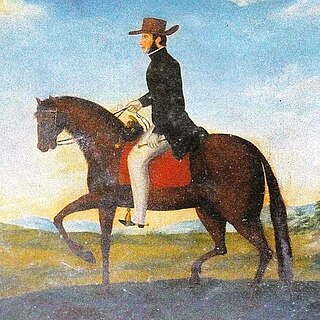
The Salvadoran Campaign of 1832 or the Salvadoran Rebellion of 1832 was a military conflict in El Salvador in 1832.












